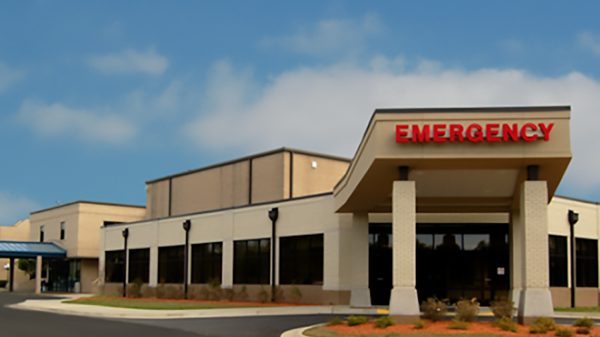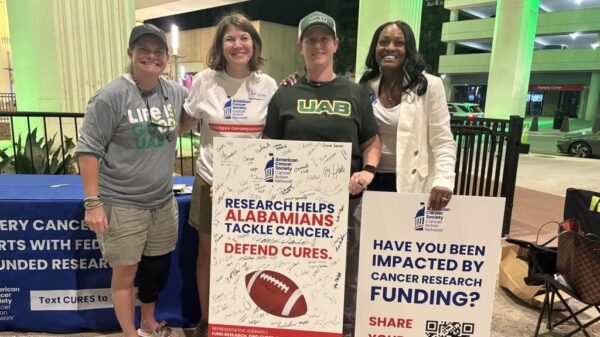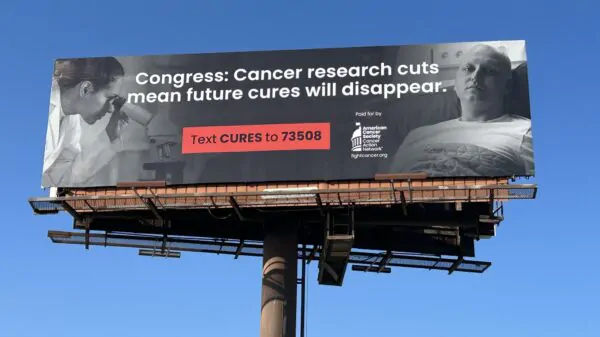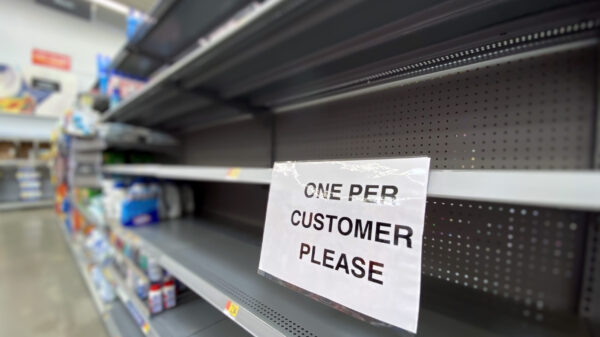A nationwide shortage of IV fluids has caused some health-care providers, including Huntsville Hospital, to postpone certain elective surgeries. This disruption in the supply of IV solution came after Hurricane Helene damaged a major IV manufacturing facility in North Carolina.
Huntsville Hospital announced Oct. 8 it would be delaying certain non-emergency surgeries due to the shortage. Elective operations that use high volumes of fluid, such as certain orthopedic, urological and gynecological surgeries, will be halted by the hospital to conserve its supply of IV fluid.
Baxter International, which had provided roughly 60 percent of IV fluid used by hospitals nationwide, was forced to cease production at its largest manufacturing facility in North Cove, N.C., after the facility suffered flood damage during Hurricane Helene. In a statement release on Oct. 9, Baxter said it aims to restart manufacturing at the North Carolina by the end of the year.
The Food and Drug Administration formally declared a shortage of three fluid products on Oct. 11.
Huntsville Hospital President and chief operating officer Tracy Doughty said, while the shortage lasts, all uses of IV fluids will be determined by patient need and supply. “In the meantime, we were told that we would receive about 40 percent of our normal fluid supply for the time being. We do not know how long that period will be,” Doughty said. “We have to make certain that we are prepared for emergencies.”
University of Alabama Birmingham Hospital representatives said UAB would not be cancelling any of its treatments due to the shortage.
A statement from UAB Medicine Public Relations Manager Adam Pope said, “UAB Hospital has proactively implemented necessary IV conservation strategies to ensure our decisions prioritize patient care and deliver the most optimized solutions. We continue to monitor supply chain conditions and will make appropriate adjustments if necessary.”
Pope also stated that UAB will be collaborating with the Alabama hospital Association and other state hospitals in order to address the disruption.
Associate Director of The University of South Alabama Health Casandra Andrews told APR that USA Health had not faced disruptions in supply, but USA officials, “will continue to monitor the situation to ensure the health and safety of our patients.”
Officials from DCH Regional Medical Center in Tuscaloosa similarly said they remained largely unaffected by the shortage.
Jamey Wilson, DCH Supply Chain System Director for Value Analysis, told WBRC, “Well, we’re going to be okay. Some of the other things we’ve done is conserve fluids where appropriate. We’ve communicated with nursing staff, with medical staff, pharmacies, and all of these things combined, we anticipate we’re going to be okay, and we’re monitoring the situation daily.”
A survey released Oct. 10 by health-care technology company Premier Inc. of more than 250 health-care providers found that more than 86 percent of U.S. health-care providers are experiencing a shortage of IV fluids. The survey also found that roughly 17 percent of respondents had cancelled elective surgeries, with 58 percent considering doing so in the near future.
The FDA announced on Oct. 9 that it had authorized imports of IV fluid from five Baxter facilities in Canada, China, Ireland and the UK, following a request made by the American Hospital Association for the Biden Administration to take action to correct the shortage.
The FDA also authorized pharmacies and facilities with the equipment necessary to compound the IV fluids included in the shortage to begin doing so to address the gap in supply.
Baxter released a statement on Oct. 14 saying that, following the FDA’s approval of imports, the company had been able to increase supply levels for its most demanded IV fluids from 40 percent to 60 percent of normal levels for customers and from 10 percent to 60 percent for distributors.
Baxter also announced that 1,000 employees and an additional 1,000 remediation contractors began recovery efforts at their NC facility the week prior, and that it expected 3,000 workers to contribute to the recovery this week. Included in the statement, a temporary bridge to the plant has been installed in partnership with the Federal Administration for Strategic Preparedness and Response and the North Carolina Department of Transportation, allowing for the transportation of over 350 truckloads of finished product. Baxter said it’s also in the process of installing a second bridge to the facility.
ASPR has also worked alongside IV solution manufacturer B. Braun Medical to address the shortage and ensure Hurricane Milton did not exacerbate the issue.
On Oct. 9, in preparation for Milton’s landfall, B. Braun moved 60 truckloads of IV fluid north of Florida from its Daytona Beach manufacturing facility with the help of ASPR. Company spokesperson Allison Longenhagen said the facility was not seriously impacted by the hurricane and was able to resume operations on Oct. 11. B. Braun stated that it had also began increasing production at its Irvine, Calif., manufacturing plant in partnership with ASPR to help bridge the gap in supply.





















































